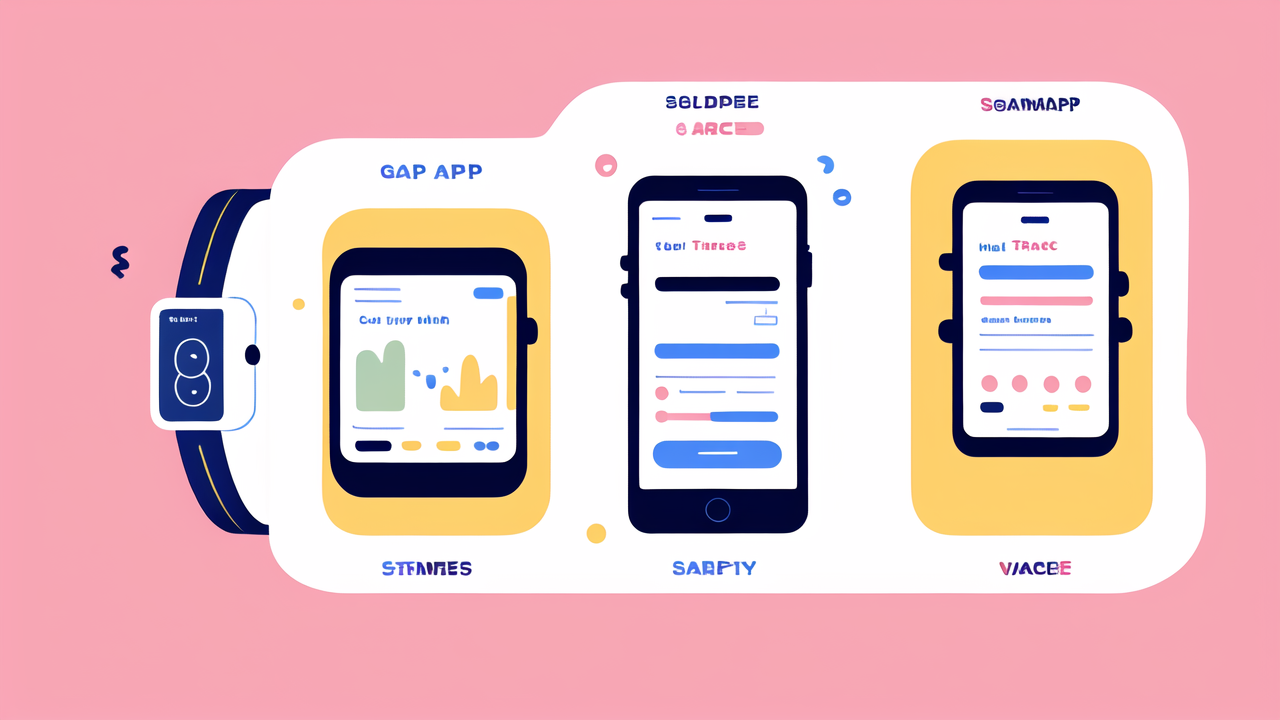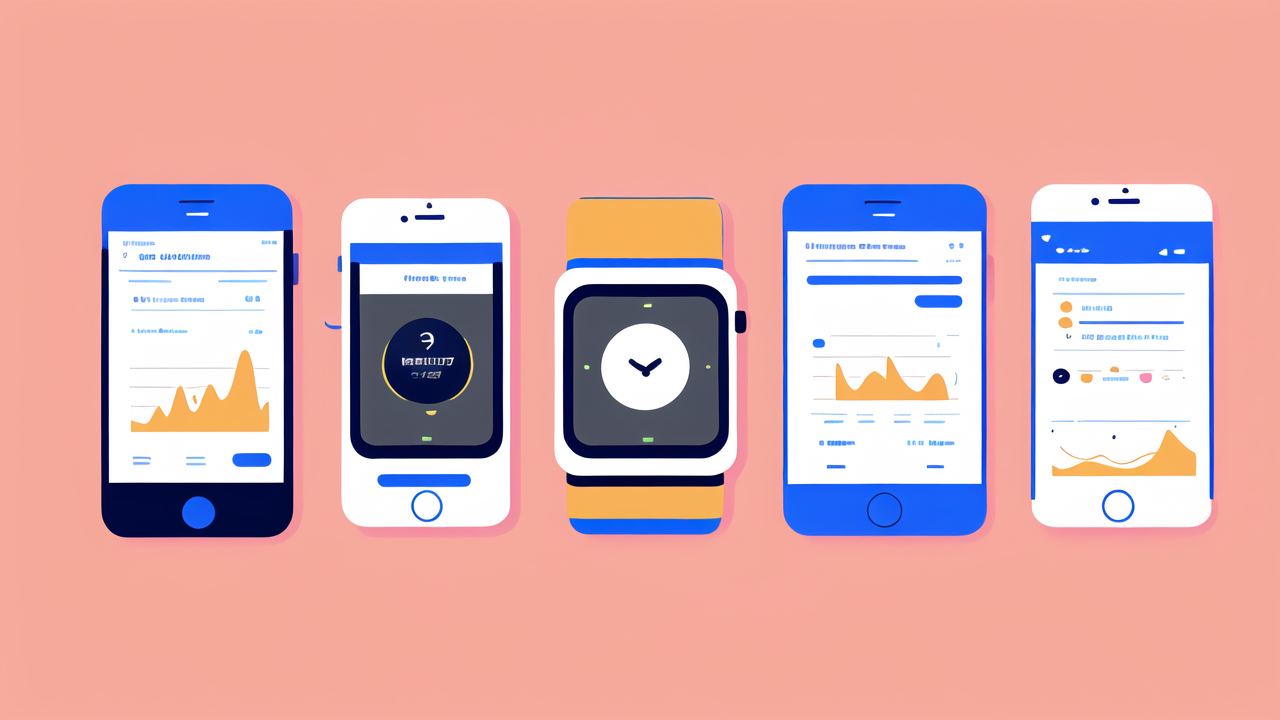Understanding the Differences: Smart Watches and Fitness Trackers Explained
The Evolution of Smart Watches and Fitness Trackers
Wearable tech has come a long way in recent years. Smart watches and fitness trackers have evolved from simple step counters to advanced health monitors. These devices now offer a wide range of features to suit different needs.

Smart watches started as extensions of our smartphones. They've grown into powerful standalone devices. They can now make calls, send texts, and run apps without a phone nearby.
Fitness trackers began as basic pedometers. Today, they're packed with sensors to track various health metrics. They can monitor heart rate, sleep patterns, and even stress levels.
Both devices have seen rapid growth in features and capabilities. They've become more accurate, user-friendly, and stylish over time. The line between them has blurred, with many devices offering overlapping functions.
Key Features of Smart Watches
Smart watches are like mini-computers on your wrist. They offer a wide range of features beyond just telling time. Here are some key features of smart watches:
- Notifications: Receive calls, texts, and app alerts right on your wrist
- App Support: Run various apps directly from the watch
- Voice Assistant: Use voice commands to set reminders, make calls, or search the web
- Fitness Tracking: Monitor steps, heart rate, and workouts
- GPS: Track your location and navigate without your phone
- Music Control: Play, pause, and skip songs on your connected device
- Contactless Payments: Make purchases with a tap of your wrist
- Customizable Watch Faces: Change the look of your watch to suit your style
Smart watches aim to be all-in-one devices. They offer convenience and connectivity in a compact form. Many models also include health tracking features similar to fitness trackers.
Key Features of Fitness Trackers
Fitness trackers focus on health and activity monitoring. They're designed to help users achieve their fitness goals. Here are the main features of fitness trackers:
- Step Counting: Track daily steps and distance traveled
- Heart Rate Monitoring: Continuous heart rate tracking throughout the day
- Sleep Tracking: Analyze sleep patterns and quality
- Workout Tracking: Record various exercises and activities
- Calorie Burning: Estimate calories burned based on activity level
- Water Resistance: Most can be worn while swimming or showering
- Long Battery Life: Often last a week or more on a single charge
- Goal Setting: Set and track progress towards fitness goals
- Smartphone Notifications: Basic alerts for calls and messages
Fitness trackers excel in health monitoring. They often have more accurate sensors and longer battery life than smart watches. However, they typically have smaller screens and fewer smart features.
Comparative Analysis: Smart Watches vs. Fitness Trackers in the United States
The Role of Smart Watches in Daily Life
Smart watches have become integral to many Americans' daily routines. They serve as extensions of smartphones, offering convenience and connectivity on the go. Users can check messages, make calls, and use apps without reaching for their phones.

In the workplace, smart watches help professionals stay connected discreetly. They can quickly glance at notifications during meetings without seeming rude. Some use them to track work hours or set reminders for tasks.
For fitness enthusiasts, smart watches offer a blend of activity tracking and smart features. They can monitor workouts while still allowing access to music and notifications. This makes them popular for those who want an all-in-one device.
Smart watches also play a role in health monitoring. Many models can track heart rate, detect falls, and even take ECG readings. This makes them valuable tools for those managing health conditions.
The Role of Fitness Trackers in Health and Wellness
Fitness trackers have found a strong niche in the health and wellness market. They're popular among those focused on improving their fitness or managing their weight. These devices provide detailed insights into daily activity levels and sleep patterns.
Many Americans use fitness trackers to motivate themselves to be more active. The devices often have goal-setting features and achievement badges. This gamification aspect can encourage users to move more throughout the day.
In the realm of sleep health, fitness trackers shine. They can track sleep duration and quality, helping users improve their rest. This is particularly valuable as more people recognize the importance of good sleep habits.
Fitness trackers are also widely used in corporate wellness programs. Companies often provide them to employees as part of health initiatives. This helps promote a culture of fitness and can lead to reduced healthcare costs.
How Smart Watches and Fitness Trackers Stand Out in Different Use Cases
Smart watches excel in scenarios where quick access to information is key. They're ideal for busy professionals who need to stay connected. If you often find yourself pulling out your phone for notifications, a smart watch might be better.
Fitness trackers stand out for dedicated health monitoring. They're perfect for those focused on improving their fitness or tracking specific health metrics. If your main goal is to track workouts and sleep, a fitness tracker may be the better choice.
For outdoor enthusiasts, smart watches often have an edge. They typically offer better GPS tracking and mapping features. This makes them more suitable for activities like hiking or running in new areas.
Battery life is where fitness trackers often win. They can last for days or even weeks on a single charge. Smart watches, with their larger screens and more power-hungry features, usually need charging daily.
In terms of style, smart watches offer more variety. They often look like traditional watches and can be dressed up or down. Fitness trackers tend to have a more sporty look, which may not suit all occasions.
Choosing the Right Device: Considerations and Recommendations
Assessing Your Lifestyle and Fitness Goals
Choosing between a smart watch and a fitness tracker depends on your lifestyle and goals. Consider these factors:

- Daily Activities: Do you need constant connectivity, or is fitness tracking your main concern?
- Fitness Level: Are you a casual exerciser or a serious athlete?
- Tech Comfort: Do you enjoy using gadgets, or prefer simpler devices?
- Battery Life: How often are you willing to charge your device?
- Budget: Smart watches are generally pricier than fitness trackers.
If you're always on the go and need quick access to messages and apps, a smart watch might be best. It can help you stay connected without constantly checking your phone.
For those focused on improving fitness or tracking specific health metrics, a fitness tracker may be ideal. These devices offer detailed activity and sleep tracking with longer battery life.
Consider your fashion preferences too. Smart watches often blend in with both casual and formal wear. Fitness trackers have a more sporty look that might not suit all occasions.
Expert Recommendations for Smart Watch and Fitness Tracker Adoption
Experts suggest starting with clear goals. If you want to boost your activity level, a simple fitness tracker might be enough. It can motivate you to move more without overwhelming you with features.
For those managing health conditions, a smart watch with advanced health features could be beneficial. Many can monitor heart rate, detect irregular rhythms, and even measure blood oxygen levels.
Tech-savvy users often prefer smart watches for their versatility. They can customize them with various apps and watch faces. This makes them more adaptable to changing needs and preferences.
Fitness professionals often recommend dedicated trackers for serious athletes. These devices typically offer more accurate tracking and longer battery life. They're better suited for long training sessions and detailed performance analysis.
For older adults or those with health concerns, experts often suggest devices with fall detection and emergency SOS features. Many smart watches now offer these potentially life-saving functions.
The Future of Wearable Technology in Health and Lifestyle
The future of wearables looks promising, with more advanced health features on the horizon. We may soon see devices that can monitor blood sugar levels or detect early signs of illness.
Artificial intelligence will play a bigger role in interpreting health data. This could lead to more personalized health insights and recommendations.
The line between smart watches and fitness trackers may continue to blur. We might see more hybrid devices that combine the best features of both.
Privacy and data security will become even more important. As these devices collect more sensitive health data, ensuring its protection will be crucial.
Integration with other smart devices and health systems will likely improve. This could lead to a more holistic approach to health monitoring and management.
As technology advances, wearables may become even more seamless and unobtrusive. We might see smart fabrics or even implantable devices in the future.
Ultimately, the goal is for these devices to become indispensable tools for managing our health and enhancing our daily lives. Whether you choose a smart watch or a fitness tracker, you're stepping into an exciting future of personal technology.




Leave a comment
This site is protected by hCaptcha and the hCaptcha Privacy Policy and Terms of Service apply.